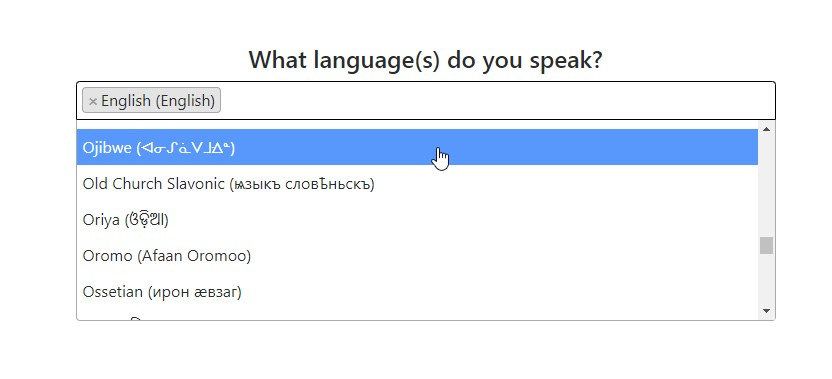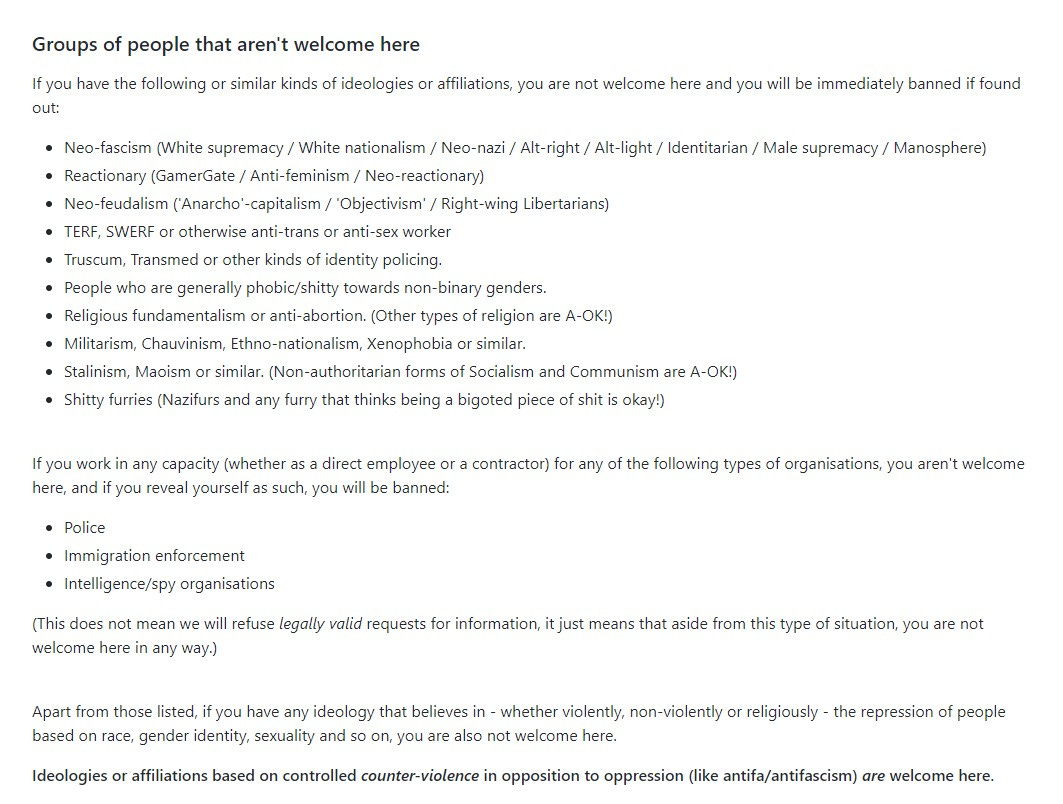The elephant shrew
Groping towards Mastodon
Is it worth trying to flee twitter for Mastodon? I’ve been exploring a little. Imagine a blind man groping an elephant, and convinced he know what it is — in this instance a bad tempered elephant shrew.
I don’t actually have an account there but this is mostly because the servers I might want to join at all collapsing under the strain of curious people from twitter. I will certainly try to get an account somewhere and play with it. The honour of procrastination demands no less.
In the meantime, some thoughts on censorship and community building.
There are two sorts of moderation or censorship possible on the net. One is social, and the other consumerist.
Social moderation, or censorship, says that there are certain things that no one should see, whether or not they want to do so. The problem in this view is that there is material which really can deprave and corrupt those who see it.
Consumerist moderation says that no one should see anything they don’t want to. The problem in that view is that consumers might be triggered or otherwise distressed by what they see.
Although there are some people, Edward Snowden for example, who think that the only problem is how to set up consumerist moderation, almost everyone believes in some degree of censorship in practice.
Not even Snowden, I think, would approve of the servers devoted to the exchange of child sexual abuse material, even though the adults involved at all consenting like billy-oh, and no one else need ever see them.
In practice all social media discover that they need both censorship and moderation. This has been true at least since the days of The Well, which I joined in 1989. Everyone needs some form of avoiding needless irritation, but any society also needs some protection from some kinds of speech, if only because of the threat of the law.
Mastodon appears at first to have a completely consumerist attitude towards moderation. Looking for a server, I was asked if I wanted to be exposed to sexual content with or without a content warning; to porn with or without a warning; also illegal content, spam, and advertising. It takes Rule 34 into another dimension to think there are people who will opt in to spam.
But there is also the pure censorship aspect. To be recognised as a “federated” server on Mastodon you must agree to exercise “Active moderation against racism, sexism, homophobia and transphobia.”
So presumably the rules forbid saying that a woman is an adult human female. I have no idea how strictly they are enforced.
The ethos of Mastodon is all in favour of permitted diversity. The list of languages supported on servers is exhaustive, with numerous African languages, the languages of various indigenous people, Latin and Old Church Slavonic all recognised.
I do hope there are no sentiments being expressed in any of these languages which would offend the proprieties of Berkeley, California.
None the less, the structure of small “federated” servers interacting with each other makes a lot of sense in theory if you are trying to build communities online.
One of the goods social media can provide is a small group of friends to talk among, like a well-moderated blog comment section. Such a group can over the years build into a genuine community, whose members are not confined in it, but stay to range all over the internet to find things of interest to talk and think about. The Mastodon network might in time grow into something like that.
But there are two enormous obstacles. The first is the power law, which means that some people will have almost all the attention, and most people will have hardly any. This isn’t an imposition from above. It corresponds with deep-seated longings. All of us who ever showed off in class know this.
That’s not just psychologically true. There is money to be made from the workings of the power law. Elon Musk, with 130m followers — a statistic I still find unbelievable — can sell things; those 130m followers can be tickled or otherwise manipulated into buying them. Any large scale network will tend to move towards being ad-supported for this reason, especially as there is no other known way to pay for all the moderation required.
We all know what is wrong with ad-supported social media.
But supposing your little community stays small and human-scale. There is then the problem that it becomes off-putting to new members and entirely self-obsessed. This is what happened in my experience both to The Well and to Unfogged. The wonderful Making Light withered, I think, for similar reasons, though it may be reviving now.
Mastodon, worryingly, comes with a set of pre-built blinkers which are guaranteed to exclude all but a narrow sect of the elect. You don’t have to apply them, but these come from a site which has a very widely used ban list.
They are pro Antifa because it’s different when we do it.
This is such a narrow and bigoted view of the world that one can’t hope for intellectual stimulation there, although it is interesting to discover that there is such a thing as a Nazifur subculture1.
So, nothing can replace twitter as a source of unexpected people whose views are interesting. As a way of making discussion communities, I think Substack and its comment sections are about the best bet at the moment. But the tension between the kind and size of communities where you can have worthwhile discussions and the kind and size of a platform where you can find new things and people must always remain. They are two very different things with different and irreconcilable purposes. Twitter was never much good for the first — if I share an in-joke on twitter it’s because I already know the victim off the site. But in the short to medium term it’s irreplaceable as a source of news and novelty.
It looks as if these restrictions were brought in after both Gab and Truth Social, notorious Trumpist/neofascist sites, started to use Mastodon’s GPL-3 licensed software. There is something very touching about the ever-renewed faith of nerds that their software could never be used for purposes they find shocking.




